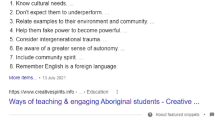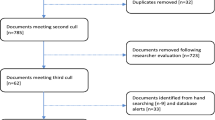Abstract
This lecture asks: How can education research address the big questions of our time, and what has politics got to do with it? It will trace moments and movements of researcher-(un)becoming to explore the (micro)politics of a lifetime of educational research. Politics is understood as both intimate and immense, as the intertwined politics of global conditions, and of the nation, with the intimately personal. It is about the researcher lives we all live. The approach was generated in a recent visit to Oulu, north Finland, where doctoral students asked me to present ‘tales’ of a researcher life. The lead student wanted to know how to manage a doctorate while raising three young children. As I have wandered back and forth over a lifetime of presentations, the shapes of key influences emerged. Relations with Aboriginal people and Country have been there since before the beginning, and are incorporated into my ways of being in the world. Feminist theories and their libidinal flows have been fundamental in shaping both my life and research, including their uneasy alliance with Aboriginal onto-epistemologies. Doctoral students have emerged as a strong generative force in my intellectual directions, moving me into all sorts of worlds I would never have entered otherwise. And finally, Place, the places where I have lived and worked have been the crucial grounding of my body and being, primal and prior, but also the basis of thought. In further elaborating these different influences, they culminate in the contemporary force of the Anthropocene, calling us to consider how the world is asking to be named, and how we can learn to be human differently, for the wellbeing of the planet. In developing this address into a paper, I have decided, in consultation with, and supported by the editor Nicole, to preserve its original content as far as possible. The knowledge contained in the address belongs with the oral performance and images as much as with the very few written words that were used in the powerpoint slides. A small selection of images is also included.






Similar content being viewed by others
Notes
The rail trail is a walking track between Boolarra and Mirboo North in Gippsland where the original logging railway line has been removed to make a commons walking track.
References
Barad, K. (2007). Meeting the universe halfway: Quantum physics and the entanglement of matter and meaning. Durham: Duke University Press.
Butler, J. (2004). Precarious life: The powers of mourning and violence. London: Verso.
Carmont, C. (1996). Tissue Talk. Unpublished Ph.D. Thesis, Department of Social. Cultural and Communication Studies. Armidale: University of New England.
Cohen, P., & Somerville, M. (1990). Ingelba and the five black matriarchs. Sydney: Allen and Unwin.
Crutzen, P., & Stoermer, E. F. (2000) Have we entered the Anthropocene? IGBP Global Change Newsletter, 41.
Grosz, E. (1994). Volatile bodies: Toward a corporeal feminism. Bloomington: Indiana University Press.
Grosz, E. (2008). Chaos, territory, art: Deleuze and the framing of the earth. New York: Columbia University Press.
Grosz, E. (Ed.). (2017). The incorporeal: Ontology, ethics and the limits of materialism. New York: Columbia University Press.
Haraway, D. (1988). Situated knowledges: The science question in feminism and the privilege of partial perspective. Feminist Studies, 14(3), 575–599.
Haraway, D. (2015). A curious practice. Angelaki: Journal of the Theoretical Humanities, 20(2), 5–14.
Heilbrun, C. (1989). Writing a woman’s life. New York: Ballantine Books.
Kirby, V. (1997). Telling flesh: The substance of the corporeal. London and New York: Routledge.
Koro-Ljungberg, M., Löytönen, T., & Tesar, M. (Eds.). (2017). Disrupting data in qualitative inquiry: Entanglements with the post-critical and post-Anthropocentric. New York: Peter Lang.
Lather, P. (1991). Getting smart: Feminist research and pedagogy with/in the postmodern. New York: Routledge.
Lather, P. (2013). Methodology-21: What do we do in the afterward? International Journal of Qualitative Studies in Education, 26(6), 634–645.
Lather, P., & Smithies, C. (1995). Troubling the angels: Women living with HIV/AIDS. New York: Routledge.
Minh-Ha, T. T. (1991). When the moon waxes red: Representation, gender and cultural politics. New York: Routledge.
Minh-Ha, T. T. (1992). Framer, framed. New York: Routledge.
Moi, T. (1999). What is a woman? And other essays. Oxford: Oxford University Press.
Richardson, L. (1994). Writing as a method of inquiry. In N. Denzin & Y. Lincoln (Eds.), The Sage handbook of qualitative inquiry (pp. 516–529). Thousand Oaks, CA: Sage Publications.
Somerville, M. (1999). Body/landscape journals. North Melbourne: Spinifex Press.
Somerville, M. (2013). Water in a dry land: Place-learning through art and story. New York and London: Routledge.
Somerville, M., & Green, M. (2015). Children, place and sustainability. New York: Palgrave Macmillan.
Somerville, M., & Perkins, T. (2010). Singing the coast. Canberra: Aboriginal Studies Press.
St. Pierre, E. A. (1997). Methodology in the fold and the irruption of transgressive data. International Journal of Qualitative Studies in Education, 10(2), 175–189.
St. Pierre, E. A., & Pillow, W. (Eds.). (1999). Working the ruins: Feminist poststructural theory and methods in education. New York and London: Routledge.
Taylor, A. (2013). Reconfiguring the natures of childhood. London: Routledge.
Acknowledgements
I would like to acknowledge the generous assistance of the Editor in Chief, Nicole Mockler, in bringing this Radford address to publication and, in particular, her encouragement to stay close to the original presentation.
Author information
Authors and Affiliations
Corresponding author
Rights and permissions
About this article
Cite this article
Somerville, M.J. Education research for the Anthropocene: the (micro)politics of researcher becoming (2017 Radford Lecture). Aust. Educ. Res. 45, 553–567 (2018). https://doi.org/10.1007/s13384-018-0281-z
Received:
Accepted:
Published:
Issue Date:
DOI: https://doi.org/10.1007/s13384-018-0281-z




